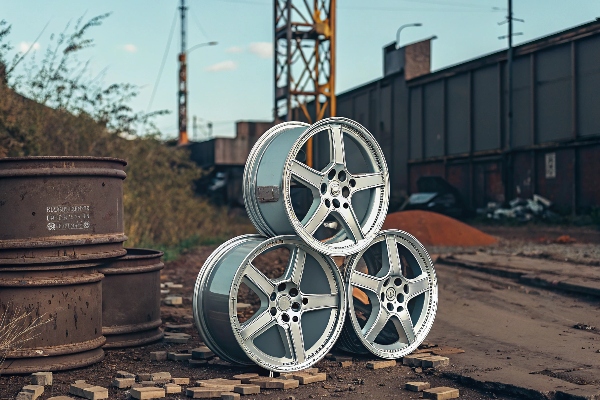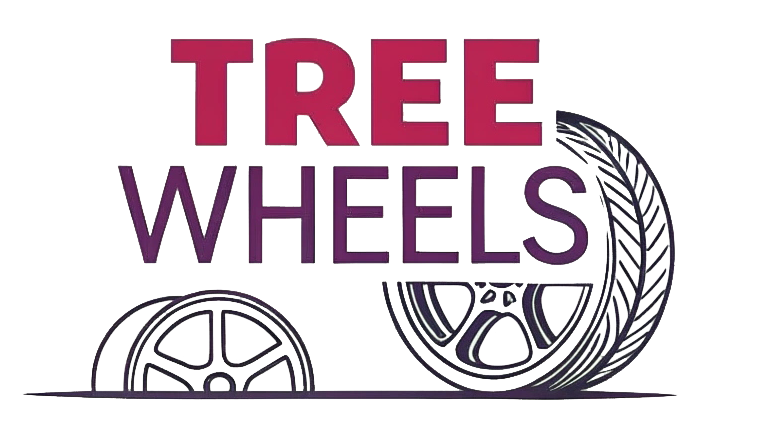Car wheels fascinate me. Their sleek designs boost a car’s style and performance. But what alloys are used in these wheels? Let’s explore the materials behind alloy wheels.
Alloy wheels are mostly made of aluminum alloys. These are lightweight, strong, and corrosion-resistant. Magnesium alloys are rarer due to cost and safety concerns.

I’ve worked with wheels for years. The alloy choice impacts performance and cost. From aluminum to magnesium, I’ll break it down. Keep reading to learn more.
What Are Car Alloy Wheels Made Of?
I love how alloy wheels shine on a car. They’re not just pretty. Their material makes a big difference. So, what exactly are these wheels made from?
Car alloy wheels are primarily aluminum alloys, mixed with silicon, magnesium, or nickel. Magnesium alloys are used in high-end wheels but are rare due to high costs.

Aluminum Alloy Composition
Aluminum alloys dominate alloy wheels. They mix aluminum with elements like silicon or magnesium. This blend makes wheels lightweight yet strong. I’ve seen this at Tree Wheels, where we use aluminum alloys for most designs. These alloys resist rust, which is great for daily drivers.
Magnesium Alloys: The Rare Choice
Magnesium alloys are lighter than aluminum. They’re used in racing or luxury cars. But they’re expensive and can catch fire in crashes. I’ve only seen a few magnesium wheels in my career. Aluminum is safer and more affordable, making it the standard.
Casting vs. Forging Processes
Alloy wheels come in two main types: cast and forged. Cast wheels are poured into molds, making them cheaper. Forged wheels are compressed under pressure, making them stronger. At Tree Wheels, we offer both, but forged wheels are pricier due to their durability.
| Material | Common Use | Pros | Cons |
|---|---|---|---|
| Aluminum Alloy | Most cars | Lightweight, affordable | Less strong than forged |
| Magnesium Alloy | Racing/luxury | Ultra-light | Expensive, flammable |
How Do You Tell If Your Rims Are Steel or Aluminum?
I’ve often checked rims at car meets. Steel and aluminum look similar, but they’re not. How can you tell them apart? It’s easier than you think.
Check weight and magnetism. Aluminum rims are lighter and non-magnetic. Steel rims are heavier and magnetic. Also, aluminum often has a shinier, polished finish.

Weight and Magnet Test
Aluminum rims are lighter than steel. Lift the wheel if possible; steel feels heavier. Use a magnet. If it sticks, it’s steel. I’ve used this trick in my shop. Aluminum won’t attract the magnet, making it a quick test.
Visual and Finish Differences
Aluminum rims often have a polished or machined look. Steel rims are duller, sometimes painted. I’ve noticed aluminum rims shine brighter under light. Check for corrosion too—steel rusts, while aluminum resists it.
Markings and Labels
Some rims have material markings. Look for “AL” or “Alloy” stamped on the rim. Steel rims may lack these. I always check the inner rim for clues when inspecting used wheels.
| Test Method | Aluminum Rims | Steel Rims |
|---|---|---|
| Weight | Lighter | Heavier |
| Magnetism | Non-magnetic | Magnetic |
| Finish | Polished, shiny | Dull, painted |
Are Alloy Wheels Worth Anything for Scrap?
I’ve seen old rims pile up in garages. Are alloy wheels worth scrapping? It’s a question I get often. Let’s look at their scrap value.
Alloy wheels are worth scrapping. Aluminum alloy wheels fetch decent prices at scrap yards due to their recyclable metal content. Prices vary by market and condition.

Why Alloy Wheels Have Value
Aluminum is a valuable recyclable metal. Scrap yards pay for alloy wheels because they can melt and reuse the aluminum. I’ve scrapped damaged rims before. Clean, undamaged wheels fetch more than bent ones.
Factors Affecting Scrap Value
Scrap prices depend on weight and market rates. Larger wheels mean more aluminum, so they’re worth more. I’ve noticed prices fluctuate based on local demand. Dirty or mixed-material wheels may be worth less.
Preparing Wheels for Scrap
Remove tires and weights before scrapping. Clean wheels get better prices. I always advise checking with multiple scrap yards. Prices vary, and some yards specialize in alloy wheels.
| Factor | Impact on Value |
|---|---|
| Wheel Size | Larger = Higher |
| Condition | Clean = Higher |
| Market Rates | Varies by region |
How Much Are Aluminum Wheels Worth for Scrap?
I’ve scrapped a few aluminum wheels myself. Their value surprises people. How much can you actually get for them? Let’s break down the numbers.
Aluminum wheels are worth $0.50–$1 per pound at scrap yards. A typical wheel weighs 20–30 pounds, so expect $10–$30 per wheel, depending on market prices.

Typical Scrap Prices
Aluminum scrap prices range from $0.50 to $1 per pound. A standard car wheel weighs about 25 pounds. That’s $12.50–$25 per wheel. I’ve gotten similar rates at local yards. Prices change with aluminum market trends.
Regional and Market Variations
Scrap prices vary by location. Urban areas often pay more due to demand. I’ve seen differences of $5 per wheel between cities. Check local yards for the best rates. Online scrap price trackers help too.
Maximizing Scrap Value
Sell clean, tire-free wheels. Batches of multiple wheels can fetch better rates. I once scrapped four wheels and got a bulk deal. Negotiate with yards to get the best price.
| Wheel Weight | Price Range |
|---|---|
| 20 lbs | $10–$20 |
| 25 lbs | $12.50–$25 |
| 30 lbs | $15–$30 |
Conclusion
Alloy wheels are mostly aluminum, offering strength and style. Scrap them for decent cash. Tree Wheels crafts custom alloy wheels for your car.



